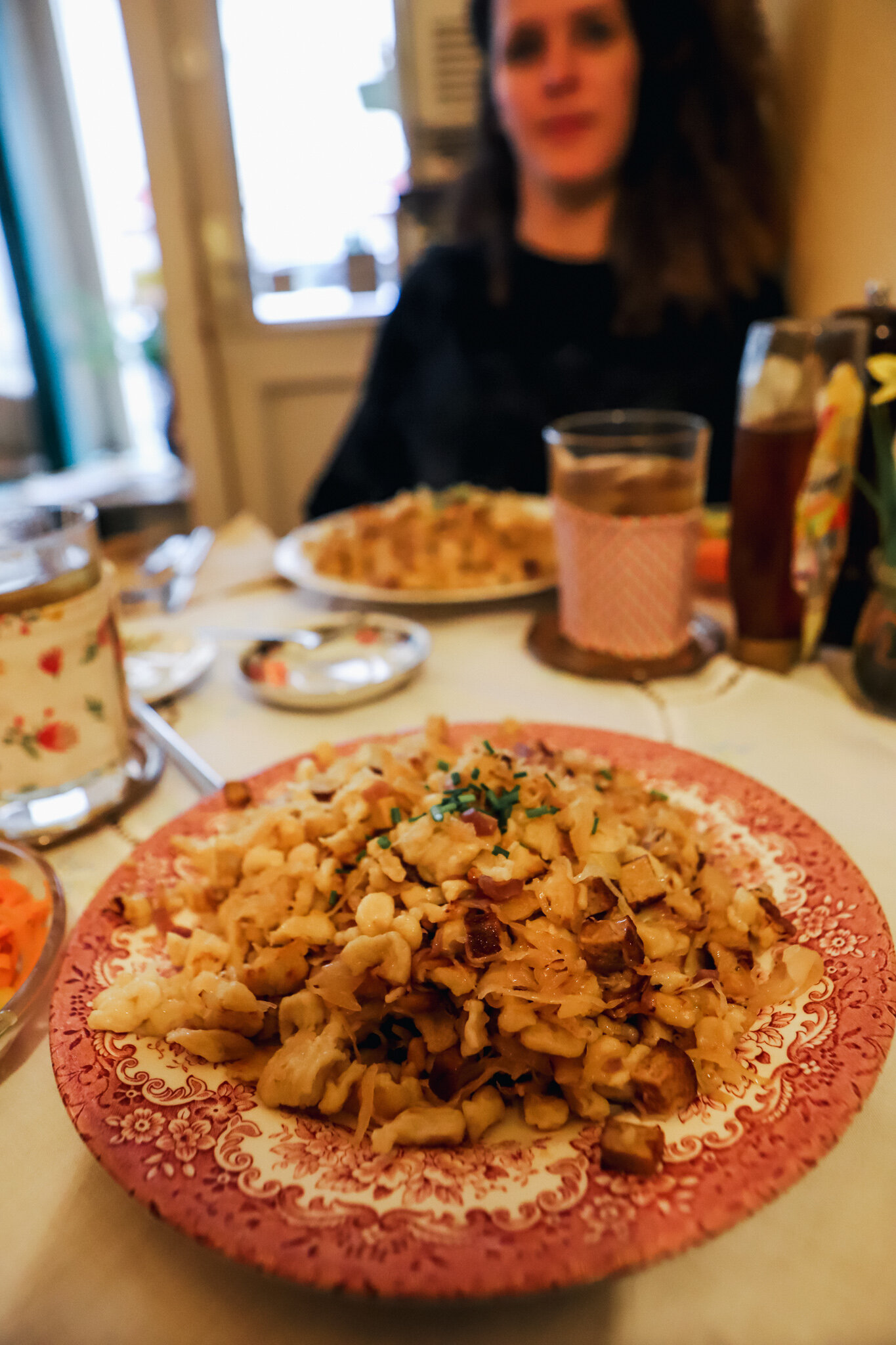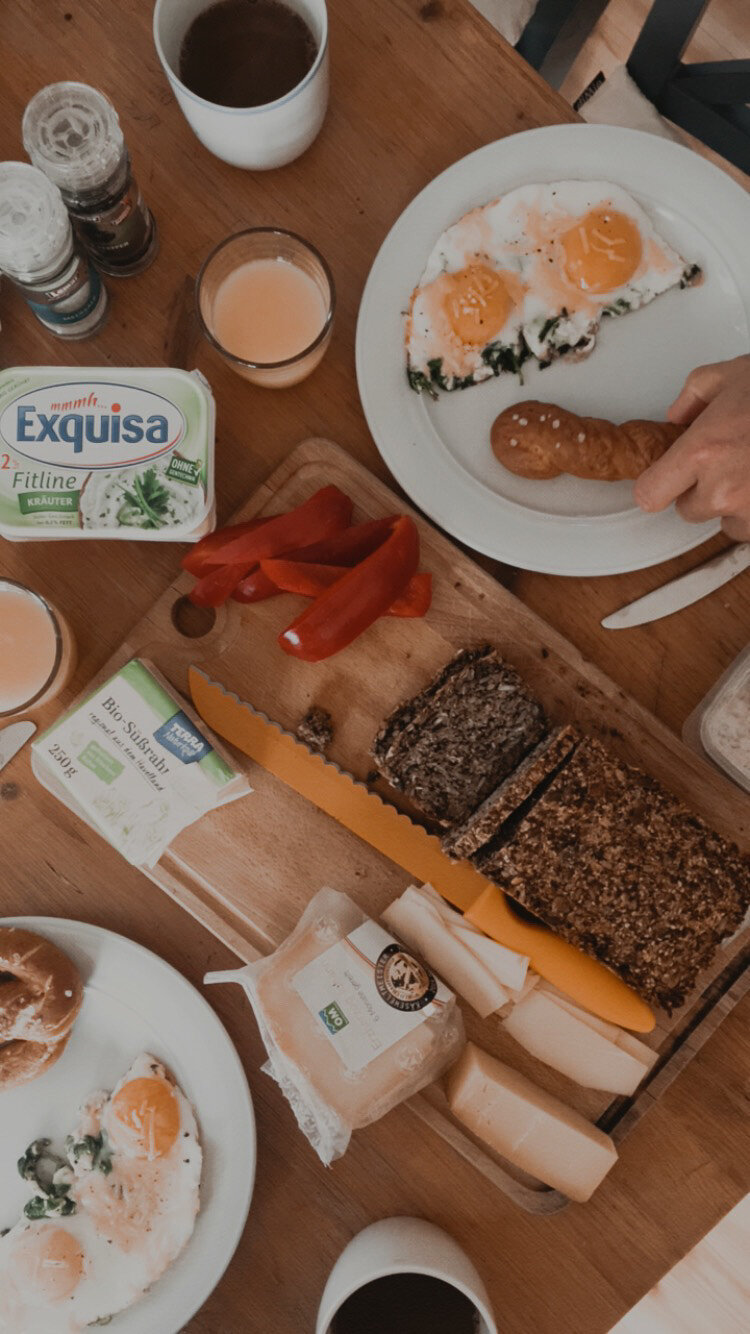The German Dishes You Have to Try and Have to Avoid
Socially-distanced date, anyone?
Last week, I was asked to contribute to an expat blog post all about one of my favorite topics ever: FOOD! And as I put together a few of my favorite German foods, I realized I’m actually a big fan of the food scene in Germany. On the contrary, over the year (and change) I lived in Portugal, I ate some incredible fish, but never came to be a big fan of the cuisine in general. So let’s go for a virtual dinner date, and let me introduce you to a few of the dishes that are keeping my belly and heart happy, in these quarantine days in Deutschland. If something catches your eye, shoot me a message and I’ll give you a recipe so you can try and make it yourself! Oh, and if you’re German and would like to take issue with my dislike for Fleischsalat, chime in below in the comments section.
Favorite German Dish?
My favorite German foods are all carb-related and it's a tie between Semmelknödel and Spätzle. They're both originally Bavarian dishes, and typically eaten in the chilly winter months, topped with some sort of rich sauce. Semmelknödel is everything you could ever hope for in a dumpling, and crafted from bits of leftover bread. I typically top it with a mushroom sauce (I use coconut milk instead of heavy cream, so don't tell my German neighbors) and fresh parsley. Spätzle on the other hand is a rustic pasta, of sorts. Topped with cheese, it's called Käsespätzle and it's an absolute staple on many beer garden menus. As far as I'm concerned, this is basically the German version of mac and cheese and I am ALL ABOUT IT.
Surprisingly good German food?
One of the more interesting foods in Germany is the fish sandwiches you'll see being sold in cafes along the coast, especially in port cities like Hamburg, where I live. To be blunt, it looks like they caught a fish, chopped off the head, and stuck it between two pieces of bread. I was very wary to try my first fish sandwich here, but upon closer inspection, I realized the fish are more like smoked filets, and accompanied by relish, remoulade, onion, and whatever other sandwich toppings you desire. And you know what? If you like fish, they're delicious! A bit disconcerting at first glance, but definitely worth a try.
Weirdest German Food
Ok, as a pescetarian, I have not tried all of the funky meat offerings in Germany but trust me, there are many. That being said, one of the German foods I just can't wrap my head around is Fleischsalat. It translates to "meat salad" and that's exactly what it is. Imagine bologna sliced into strips and mixed with mayonnaise and you've landed on Flieschsalat. To me, the concept of it is gross, the appearance of it is gross, and the name is even worse. But shhh, don't tell my boyfriend. It's a breakfast staple for him.
Must try german food for tourists
Germans are masters of breadmaking. The dark, whole-wheat bread varieties available in Germany are unlike anywhere else in the world. As a result, most baked goods in Germany are superb. I recommend trying a Franzbrötchen, which is a German twist on a cinnamon roll, whenever you're in Hamburg.
And it goes without saying that beer is a staple in every German household. As a beer lover, it took me a while to find a beer variety that I preferred (as I don't like the lighter beers like pilseners). But when I discovered the Zwickel beer, it was a match made in heaven. 10/10 recommend trying a Zwickel if you're a beer person.
German Specific restaurant etiquette?
Things here function like they do in the rest of Europe, with the highlight being weekend breakfast. Germans take breakfast incredibly seriously, and most cafes are judged by their clientele based on their breakfast spread. Waking up with a selection of rolls, cheeses, spreads, meats (if that's your thing), eggs, and fruit is an essential weekend routine for Germans, accompanied by a strong coffee of course. I highly recommend dining out for weekend breakfast wherever you stay in Germany, as it’ll give you a much better feel for the food culture than a boring ol’ lunch.
While I still have much more to taste in Germany, the above are a few highlights (in addition to the Brezeln at Oktoberfest). Luckily, if you’re vegan or vegetarian, Germany’s major cities have TONS of options to suit your meal choices. In the smaller towns, you’ll still find the “meat and potatoes” mantra going strong, but slowly vegetarian things are creeping their way on to the menus (normally potato-filled and topped with cheese).
For my favorite bites in Hamburg, take a peek at this post.
To get a taste of the food scene in other countries, as told by expats, check out the blog post I contributed to here.






